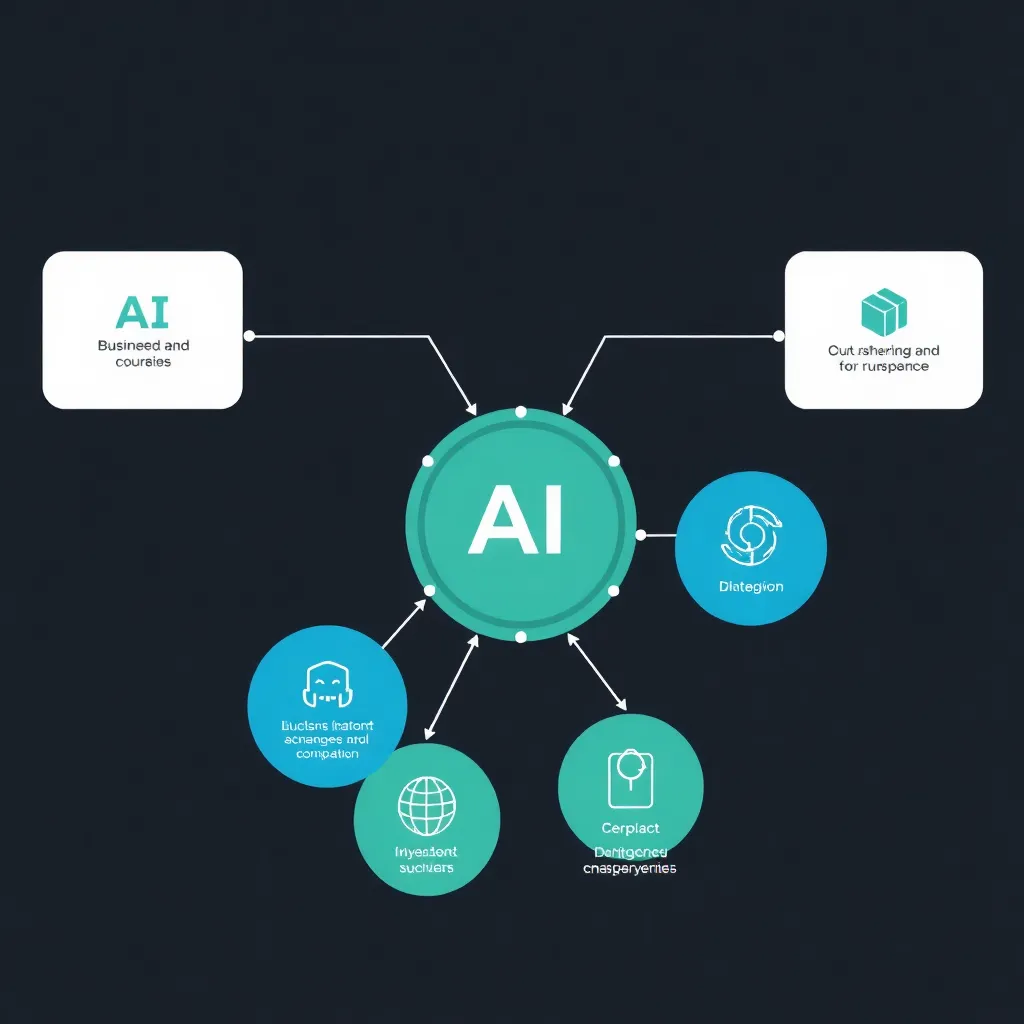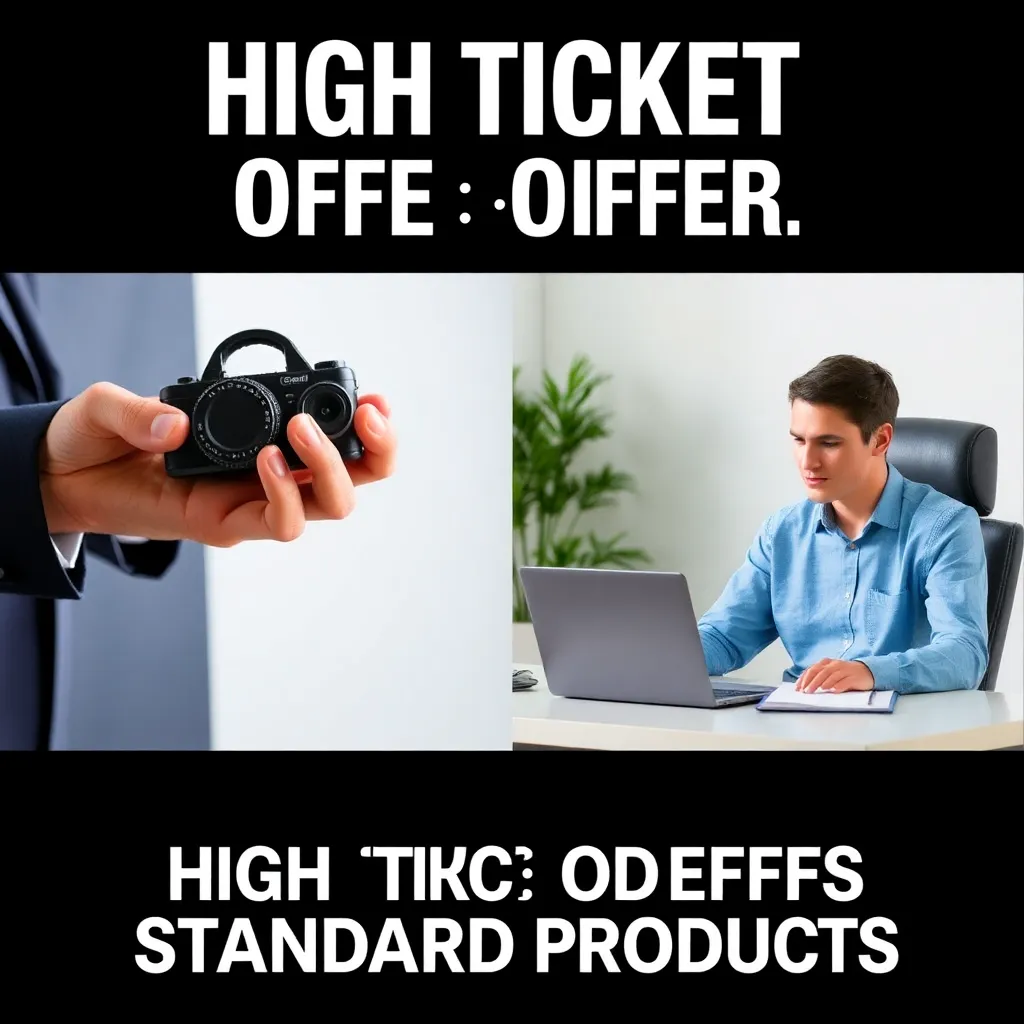High-ticket offers have become a go-to strategy for businesses looking to drive revenue and customer loyalty in today’s competitive market. By offering premium products or services at a higher price point, businesses can increase their average order value and build stronger relationships with their customers. According to a study by HubSpot, high-ticket offers can lead to a significant increase in customer lifetime value, with some businesses reporting an increase of up to 25%. This is because high-ticket offers often provide more personalized and exclusive experiences, leading to higher customer satisfaction and loyalty.
However, creating high-ticket offers that resonate with customers can be a challenging task, especially for businesses with limited resources. This is where AI can come in – by analyzing customer data and behavior, AI can help businesses identify opportunities to create high-ticket offers that meet their customers’ needs and preferences. For instance, AI-powered tools can analyze customer purchase history and preferences to suggest personalized product bundles or premium services that are likely to appeal to them.
Moreover, AI can also help businesses optimize their sales strategy for high-ticket offers. By analyzing customer interactions and feedback, AI can identify the most effective sales channels and messaging strategies to use when promoting high-ticket offers. This can help businesses increase conversions and reduce the risk of rejection. According to a study by McKinsey, AI-powered sales tools can increase sales productivity by up to 15%, making them a valuable asset for businesses looking to drive revenue growth.
By leveraging AI to create and sell high-ticket offers, businesses can unlock new revenue streams and build stronger relationships with their customers. In the next section, we’ll explore some practical strategies for using AI to create high-ticket offers that drive sales and customer loyalty.
Understanding High-Ticket Offers
High-ticket offers are designed to provide unparalleled value to customers, often commanding a premium price due to their exclusivity and transformative potential. These offers can take many forms, such as personalized coaching or consulting services, advanced training programs, or cutting-edge software solutions. The common thread among these offerings is their ability to deliver significant, tangible results that justify the investment.
To create a compelling high-ticket offer, it’s essential to develop a deep understanding of your target audience’s pain points and challenges. This involves conducting thorough market research, gathering feedback, and analyzing industry trends to identify areas where customers are struggling. By doing so, you can craft an offer that speaks directly to their needs, providing a solution that resonates with them on a deep level.
When done correctly, high-ticket offers can be incredibly lucrative, allowing businesses to generate significant revenue while building strong, loyal relationships with their customers. In fact, according to a study by Gartner, high-ticket items can account for up to 50% of a company’s total revenue. By focusing on delivering exceptional value, businesses can justify premium pricing and reap the rewards of a successful high-ticket strategy.
Ultimately, the key to success with high-ticket offers lies in striking a balance between delivering exceptional value and justifying the associated cost. By understanding your target audience’s needs, creating an offer that addresses those needs, and communicating the unique benefits and results that your solution provides, you can build a loyal customer base and drive long-term revenue growth.

How AI Can Help You Create High-Ticket Offers
The ability of AI-powered tools to analyze vast amounts of customer data is a game-changer for businesses looking to create high-ticket offers that resonate with their target audience. By identifying patterns and preferences, companies can tailor their offers to meet the specific needs and desires of their customers, increasing the likelihood of conversion.
One of the key benefits of AI-driven content generation tools is their ability to craft compelling sales copy that speaks directly to the customer’s pain points and interests. According to a study by MarketingProfs, personalized content can increase conversion rates by up to 10%. By leveraging AI-driven tools, businesses can create highly targeted and effective sales copy that drives results.
Predictive analytics is another area where AI-powered tools can have a significant impact. By analyzing customer data and market trends, businesses can forecast demand and optimize their pricing strategies to maximize revenue. This can be particularly useful for businesses operating in competitive markets, where small changes in pricing can have a significant impact on market share.
Using AI to Personalize Your Offers
In today’s digital landscape, personalization is no longer a nice-to-have, but a must-have for businesses looking to create high-ticket offers that truly resonate with their target audience. By leveraging AI-powered chatbots and email marketing tools, companies can gather valuable insights into individual customer preferences, behaviors, and pain points, allowing them to craft tailored messaging and offers that speak directly to their needs.
This level of personalization not only helps to build trust and rapport with potential customers but also increases the likelihood of conversion. According to a study by MarketingProfs, 71% of consumers prefer personalized ads, and 76% of them get frustrated when they don’t receive personalized content. By using AI-powered tools to personalize their messaging, businesses can avoid this frustration and create offers that truly resonate with their audience.
Moreover, personalization also enables businesses to stand out in a crowded market, differentiating themselves from competitors and establishing a unique value proposition. By taking the time to understand individual customer needs and preferences, companies can create high-ticket offers that feel bespoke and exclusive, rather than generic and mass-produced.

Maximizing Sales with AI-Driven Strategies
One of the most significant advantages of using AI in sales is its ability to analyze large amounts of data and identify areas where the sales funnel can be optimized. By pinpointing bottlenecks and inefficiencies, businesses can make targeted improvements to their sales strategy, resulting in increased conversions and revenue growth.
AI-driven sales forecasting and pipeline management tools are particularly effective in this regard. These tools can analyze historical sales data, market trends, and customer behavior to provide accurate predictions about future sales performance. This enables businesses to refine their sales strategy, allocate resources more effectively, and make data-driven decisions to drive growth.
Moreover, AI-powered sales tools can help businesses identify opportunities to upsell and cross-sell, as well as detect potential roadblocks in the sales process. By automating routine tasks and providing actionable insights, these tools can free up sales teams to focus on high-value activities like building relationships and closing deals.
According to a study by Salesforce, businesses that use AI-powered sales tools see an average increase of 28% in sales productivity and 26% in sales accuracy. By leveraging these tools, businesses can gain a competitive edge in their respective markets and drive long-term success.
Conclusion: Unlocking the Power of AI for High-Ticket Offers
High-ticket offers have the potential to significantly boost revenue and customer satisfaction, but creating them requires a deep understanding of your target audience’s needs and preferences. By leveraging AI-powered tools, you can gain valuable insights into customer behavior and tailor your offers to meet their specific requirements. For instance, AI-driven analytics can help you identify patterns and trends in customer purchasing habits, allowing you to develop targeted promotions and discounts that resonate with your audience.
Personalization is key to creating high-ticket offers that drive sales. AI-powered tools can help you tailor your offers to individual customers based on their unique characteristics, such as purchase history, browsing behavior, and demographics. This level of personalization can lead to increased customer satisfaction and loyalty, as customers feel that their needs are being met and valued. According to a study by Salesforce, 71% of consumers prefer personalized advertisements, highlighting the importance of tailoring your offers to individual customers.
To maximize sales, it’s essential to continually refine your high-ticket offer strategy. AI-powered tools can help you analyze customer feedback and sentiment, identify areas for improvement, and optimize your offers in real-time. By staying agile and responsive to customer needs, you can stay ahead of the competition and drive revenue growth. Additionally, AI-driven predictive analytics can help you forecast sales trends and adjust your strategy accordingly, ensuring that you’re always one step ahead of the competition.

